David and Pierre Callant
In a forest in the Ardennes, an isolated house steeped in a rich family history and used as a hunting lodge for many years, comes into the path of an estate agent. The family atmosphere of the house will literally try to resurface and revive old repressed memories in the estate agent.
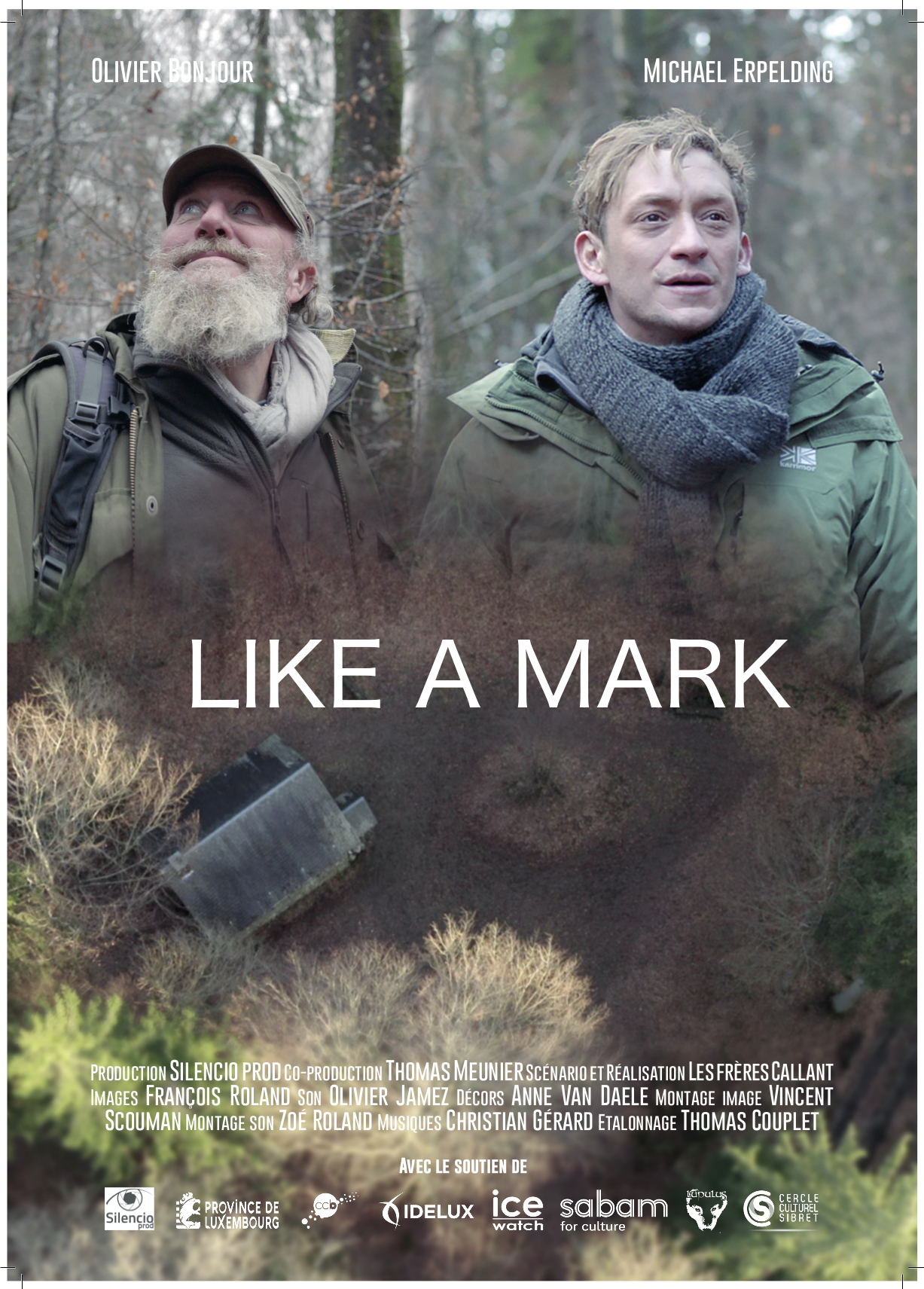
1. Your project has entered in our festival. What is your project about?
We wanted to explore the possibilities of giving a house the characteristics of a real fictional character. We also wanted to deal with the question: how can a place reconnect a man to his roots?
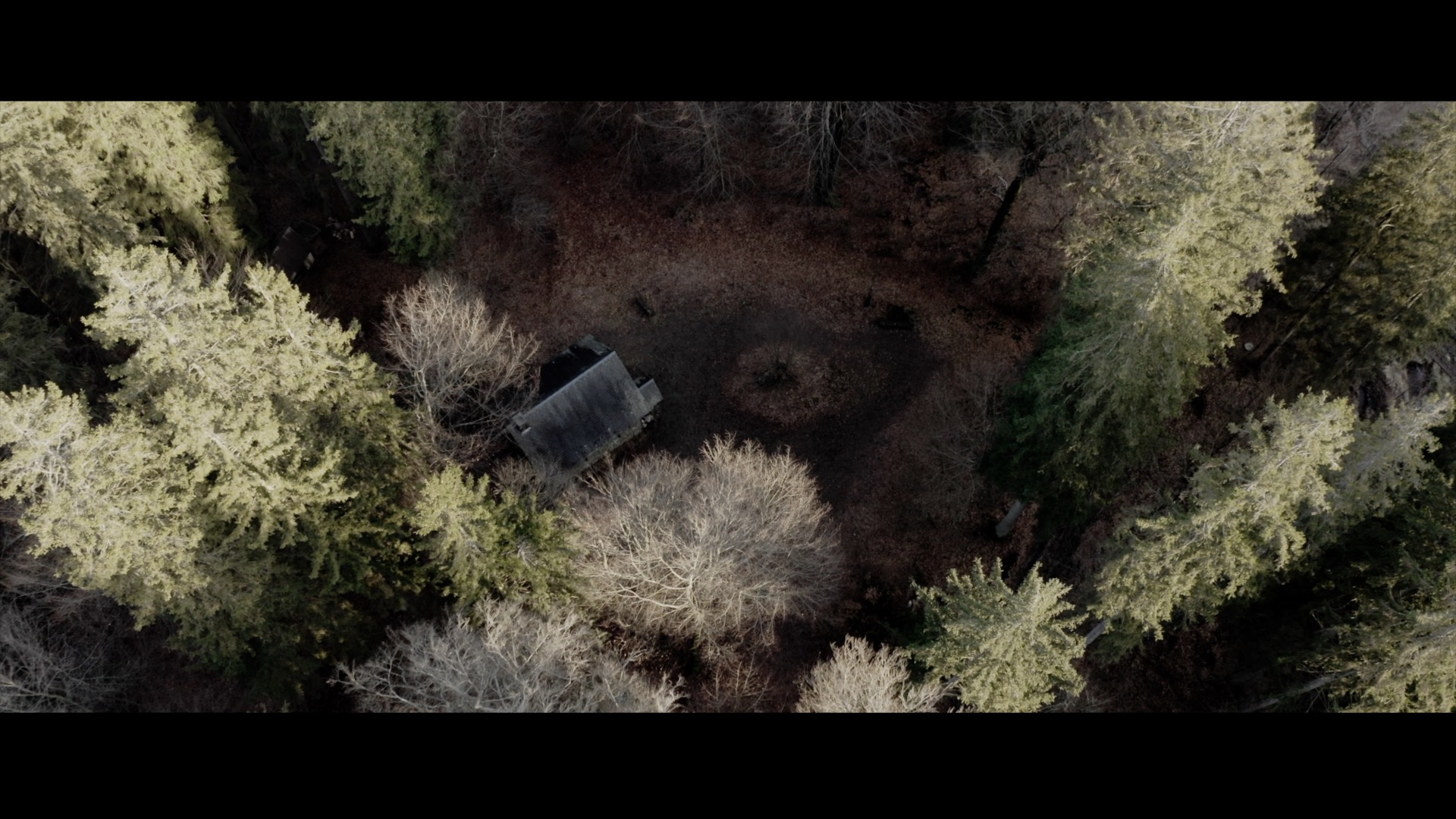
2. What are your ambitions with your project?
We didn't have any particular ambition at the script stage. We just had an idea and the will to tell a story. The ambition grew little by little as our project came to life. After meeting all the partners in our project and as they became more and more involved, our ambition grew as a result of their very positive feedback. Today we hope that the film will give good visibility to our work and open other doors for the realisation of a future project.
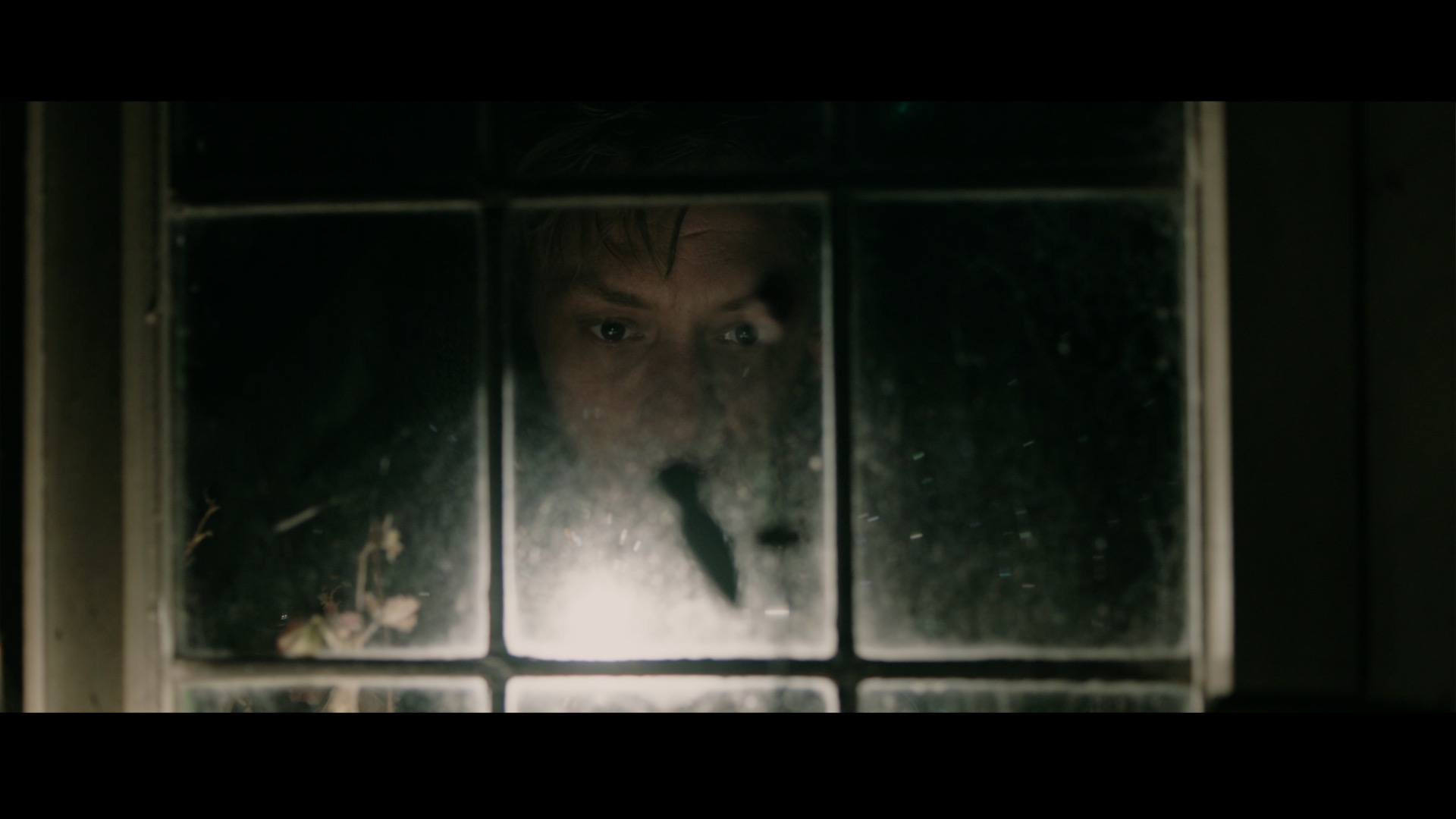
3. Tell us somethng about your shooting? What pleasantly surprised you?
The film also shows and tells about the Ardennes forest. The Ardennes is a tourist region in Belgium, so we didn't want to make yet another "postcard" of the region, but to tell the story of the Ardennes in its most authentic and sometimes mysterious way. Moreover, we wanted to bring a melancholic, nostalgic atmosphere that fits well with the character of Alex. So we opted to shoot in late autumn, with leafless trees. Only in the Ardennes, in late autumn, the weather can be difficult. During the shoot we had snow and freezing temperatures and with the scenes mostly shot outdoors, the conditions were very difficult.
We were pleasantly surprised by the spirit of cohesion shown by the team to face these difficult conditions. The important thing for a director is to be able to use this kind of constraint to push the film to the top.
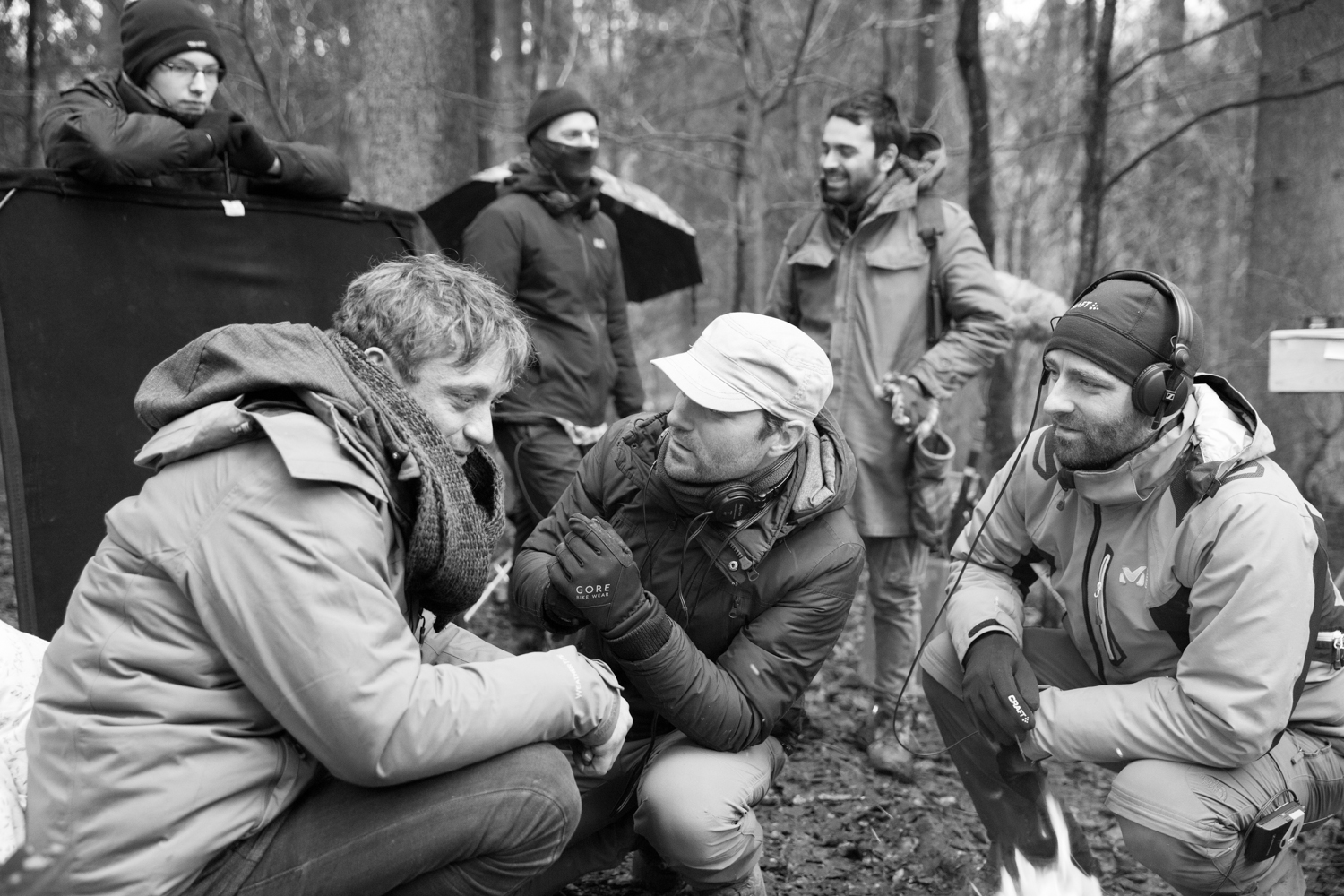
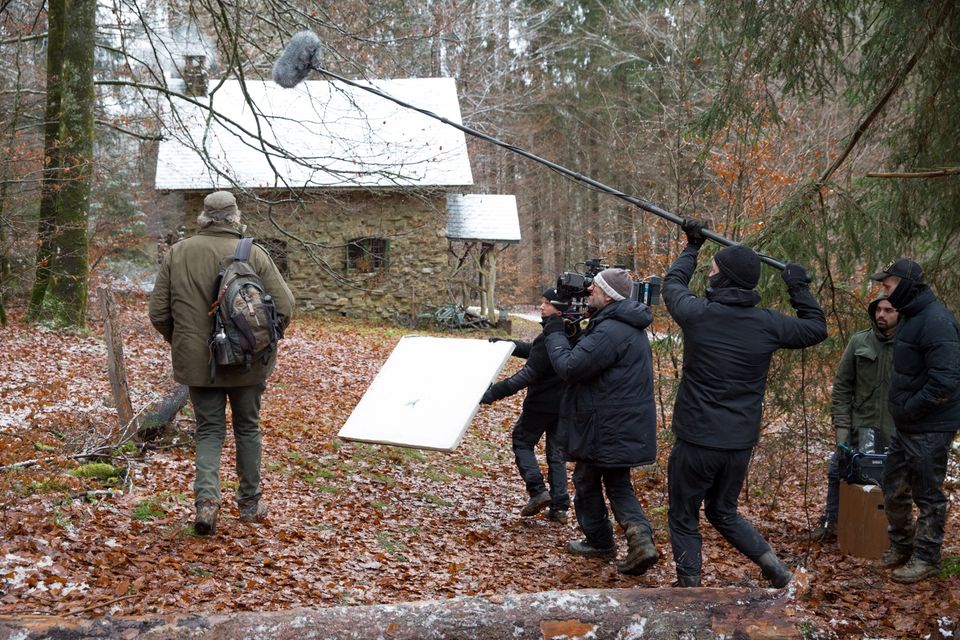
4. For what group of spectators is your film targeted?
Everyone
5. Why should distributors buy your film?
The script was written before the covid 19 crisis but after the theatrical screenings we had a lot of feedback from spectators who appreciated the theme "back to basics and nature". Many people felt this need after the different confinements related to the covid crisis. Today this theme of "back to nature" is still relevant and speaks to many people. Therefore, the themes that the film addresses seem to us to be very much in tune with the times and more meaningful than ever. Even if the film is about this specific region of Belgium, the Ardennes, all the themes that the film deals with are universal themes that can speak to everyone. Like the link between a man and his territory and his roots, the soul of childhood, abandonment, the relationship between man and forest.
6. How would you specify your work? What characterizes your film?
For us, film is a real team effort. Our film would not be what it is if we had worked with other people. And we are not talking about quality but about personality and sensitivity. The film is what it is because it was shot with this team. It is important for us that each member of the team can bring his or her own vision and sensitivity to the creative process, even if this does not mean that the project does not need a captain who can show authority, who can make decisions and give a clear direction.
It can therefore be said that this film is a film of sensitivity, where the actors, but also the technical team, had the time and space to work and express their emotions.
7. Why did you decide to become a filmmaker?
A question that has been driving us for a long time: what is an Artist? A creator, a transmitter of emotions, an interpreter of ideas and sensations? After long discussions, reflections and debates, we are not yet sure of a clear answer. However, what is certain is that, as long-time film enthusiasts, our professional fulfilment comes from creativity and storytelling through image and sound, and because telling a story is, for us, a necessity. Does that make us artists? In the end it doesn't matter, it makes us film makers.
8. Who is your role model?
Cinema is an extremely difficult art. We realised this even more when we made our first fiction film. All those who manage, despite the many difficulties, to make us experience all kinds of emotions through this magnificent art, are models for us. There are so many...
9. Which movies are your favorites? Why?
All the films that manage to make us experience various emotions while exploiting the potential of cinema (sound ambiance, image size, ...) to the maximum. We like to say that for us, a film is really successful when it makes us want to make one ourselves when we leave the cinema. And there are so many of them...
10. Where do you look for inspiration for your films?
We are very deeply attached to our native region, the Belgian Ardennes. Its atmosphere, its forests, its heritage, its legends are an inexhaustible source of inspiration for us.
11. Which topics interest you the most?
The main subject that interests us and that should interest the whole world is the link between the animal "Human" and his environment.
12. What do you consider your greatest achievement in your career?
Making this first short film is already a huge achievement for us. We now hope that this film will be the first of a longer series.
13. What do you consider most important about filming?
There are so many different aspects to what we perceive in the term "filming" that it is difficult to answer this question without further clarification.
14. Which film technique of shooting do you consider the best?
All techniques that allow to emphasize the potential of cinema (sound ambiance, image size, ...). All are good if they can achieve this objective.
15. How would you rate/What is your opinion about current filmmaking?
We have a defect, we are bad art critics. It is difficult for us to intellectualise cinema. We refer a lot to our instinct and emotions.
16. What can disappoint you in a movie?
Boredom. Length and/or a badly worked out rhythm or one that is not adapted to the subject.
17. Who supports you in your film career?
Through crowdfunding, we managed to create a great community around us and this film, which now follows us and supports us. Besides the financial aspect of course, this was really one of the objectives of this crowdfunding campaign.
18. What are the reactions to your film? (opinion of spectators, film critics, friends and family)
A priori, spectators who are not sensitive to the film or who do not like it, rarely come to discuss with us at the end of the screenings. It is therefore difficult to remain totally objective and realistic about the opinion of the film's spectators, but having said that, all the feedback we have on the film is very positive. Here is a small selection:
"SUPERB! I was very touched by it.
Not a word too many in the dialogues, a lot of emotions passing through the faces, all treated with finesse, delicacy..."
(Spectator)
"I was very touched by the screening of the short film in Bastogne on Sunday. As some people have said, there was more than just a short film to be seen..."
(Spectator)
"Well, shit then.... I know I'm being vulgar but it's the first thing that comes to my mind!
The last time I had a tight throat while watching a film, I honestly don't remember!
Bravo! ... Because I'm a bad customer. So BRAVO for managing to bring out so much emotion, tenderness, humanity in 23 minutes!
It's just SUPERB! The images, the cast, the atmosphere... A whole that frustrates when you reach the last minute without realizing it."
(Journalist)
"A little tear of nostalgia and a great desire to go into the woods in search of one's roots. Very gripping."
(Journalist)
"Unbelievable! There are films that can last 4 hours and never tell anything... You did the job in 20 minutes. Genius!"
(Thomas Meunier, professional footballer, Belgian international Redevils, art and culture lover and also very attached to his native Ardennes)
19. Have you already visited any of the prestigious film festivals?
No, as we are just starting out in fiction filmmaking, we have not yet had the chance or opportunity to attend a recognised festival. So it would be amazing if our film could be selected in your festival.
20. What are your future plans in filmmaking career?
After graduating from a film school in Brussels (capital of Belgium) in 2004, we have been working as freelancers in the video world. It took us almost 18 years to get back to our first love, cinema. We have always seen this project as a starting point for a reorientation in our career. We feel that we are mature, ready and have a real desire to tell and direct stories. We hope that this first film will open doors to future fiction films, but whatever the career of this first film "Like a mark", we know that we will make our next film very quickly. We have already started writing a new script.
We wanted to explore the possibilities of giving a house the characteristics of a real fictional character. We also wanted to deal with the question: how can a place reconnect a man to his roots?

2. What are your ambitions with your project?
We didn't have any particular ambition at the script stage. We just had an idea and the will to tell a story. The ambition grew little by little as our project came to life. After meeting all the partners in our project and as they became more and more involved, our ambition grew as a result of their very positive feedback. Today we hope that the film will give good visibility to our work and open other doors for the realisation of a future project.

3. Tell us somethng about your shooting? What pleasantly surprised you?
The film also shows and tells about the Ardennes forest. The Ardennes is a tourist region in Belgium, so we didn't want to make yet another "postcard" of the region, but to tell the story of the Ardennes in its most authentic and sometimes mysterious way. Moreover, we wanted to bring a melancholic, nostalgic atmosphere that fits well with the character of Alex. So we opted to shoot in late autumn, with leafless trees. Only in the Ardennes, in late autumn, the weather can be difficult. During the shoot we had snow and freezing temperatures and with the scenes mostly shot outdoors, the conditions were very difficult.
We were pleasantly surprised by the spirit of cohesion shown by the team to face these difficult conditions. The important thing for a director is to be able to use this kind of constraint to push the film to the top.

4. For what group of spectators is your film targeted?
Everyone
5. Why should distributors buy your film?
The script was written before the covid 19 crisis but after the theatrical screenings we had a lot of feedback from spectators who appreciated the theme "back to basics and nature". Many people felt this need after the different confinements related to the covid crisis. Today this theme of "back to nature" is still relevant and speaks to many people. Therefore, the themes that the film addresses seem to us to be very much in tune with the times and more meaningful than ever. Even if the film is about this specific region of Belgium, the Ardennes, all the themes that the film deals with are universal themes that can speak to everyone. Like the link between a man and his territory and his roots, the soul of childhood, abandonment, the relationship between man and forest.
6. How would you specify your work? What characterizes your film?
For us, film is a real team effort. Our film would not be what it is if we had worked with other people. And we are not talking about quality but about personality and sensitivity. The film is what it is because it was shot with this team. It is important for us that each member of the team can bring his or her own vision and sensitivity to the creative process, even if this does not mean that the project does not need a captain who can show authority, who can make decisions and give a clear direction.
It can therefore be said that this film is a film of sensitivity, where the actors, but also the technical team, had the time and space to work and express their emotions.
7. Why did you decide to become a filmmaker?
A question that has been driving us for a long time: what is an Artist? A creator, a transmitter of emotions, an interpreter of ideas and sensations? After long discussions, reflections and debates, we are not yet sure of a clear answer. However, what is certain is that, as long-time film enthusiasts, our professional fulfilment comes from creativity and storytelling through image and sound, and because telling a story is, for us, a necessity. Does that make us artists? In the end it doesn't matter, it makes us film makers.
8. Who is your role model?
Cinema is an extremely difficult art. We realised this even more when we made our first fiction film. All those who manage, despite the many difficulties, to make us experience all kinds of emotions through this magnificent art, are models for us. There are so many...
9. Which movies are your favorites? Why?
All the films that manage to make us experience various emotions while exploiting the potential of cinema (sound ambiance, image size, ...) to the maximum. We like to say that for us, a film is really successful when it makes us want to make one ourselves when we leave the cinema. And there are so many of them...
10. Where do you look for inspiration for your films?
We are very deeply attached to our native region, the Belgian Ardennes. Its atmosphere, its forests, its heritage, its legends are an inexhaustible source of inspiration for us.
11. Which topics interest you the most?
The main subject that interests us and that should interest the whole world is the link between the animal "Human" and his environment.
12. What do you consider your greatest achievement in your career?
Making this first short film is already a huge achievement for us. We now hope that this film will be the first of a longer series.
13. What do you consider most important about filming?
There are so many different aspects to what we perceive in the term "filming" that it is difficult to answer this question without further clarification.
14. Which film technique of shooting do you consider the best?
All techniques that allow to emphasize the potential of cinema (sound ambiance, image size, ...). All are good if they can achieve this objective.
15. How would you rate/What is your opinion about current filmmaking?
We have a defect, we are bad art critics. It is difficult for us to intellectualise cinema. We refer a lot to our instinct and emotions.
16. What can disappoint you in a movie?
Boredom. Length and/or a badly worked out rhythm or one that is not adapted to the subject.
17. Who supports you in your film career?
Through crowdfunding, we managed to create a great community around us and this film, which now follows us and supports us. Besides the financial aspect of course, this was really one of the objectives of this crowdfunding campaign.
18. What are the reactions to your film? (opinion of spectators, film critics, friends and family)
A priori, spectators who are not sensitive to the film or who do not like it, rarely come to discuss with us at the end of the screenings. It is therefore difficult to remain totally objective and realistic about the opinion of the film's spectators, but having said that, all the feedback we have on the film is very positive. Here is a small selection:
"SUPERB! I was very touched by it.
Not a word too many in the dialogues, a lot of emotions passing through the faces, all treated with finesse, delicacy..."
(Spectator)
"I was very touched by the screening of the short film in Bastogne on Sunday. As some people have said, there was more than just a short film to be seen..."
(Spectator)
"Well, shit then.... I know I'm being vulgar but it's the first thing that comes to my mind!
The last time I had a tight throat while watching a film, I honestly don't remember!
Bravo! ... Because I'm a bad customer. So BRAVO for managing to bring out so much emotion, tenderness, humanity in 23 minutes!
It's just SUPERB! The images, the cast, the atmosphere... A whole that frustrates when you reach the last minute without realizing it."
(Journalist)
"A little tear of nostalgia and a great desire to go into the woods in search of one's roots. Very gripping."
(Journalist)
"Unbelievable! There are films that can last 4 hours and never tell anything... You did the job in 20 minutes. Genius!"
(Thomas Meunier, professional footballer, Belgian international Redevils, art and culture lover and also very attached to his native Ardennes)
19. Have you already visited any of the prestigious film festivals?
No, as we are just starting out in fiction filmmaking, we have not yet had the chance or opportunity to attend a recognised festival. So it would be amazing if our film could be selected in your festival.
20. What are your future plans in filmmaking career?
After graduating from a film school in Brussels (capital of Belgium) in 2004, we have been working as freelancers in the video world. It took us almost 18 years to get back to our first love, cinema. We have always seen this project as a starting point for a reorientation in our career. We feel that we are mature, ready and have a real desire to tell and direct stories. We hope that this first film will open doors to future fiction films, but whatever the career of this first film "Like a mark", we know that we will make our next film very quickly. We have already started writing a new script.
